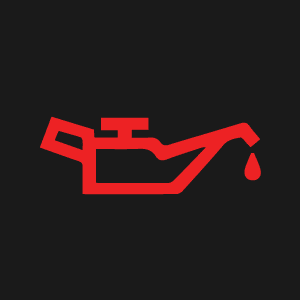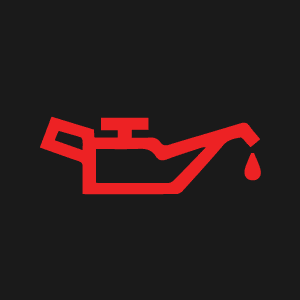Low oil pressure can cause a vehicle not to start due to insufficient lubrication and increased friction in the engine, leading to overheating and reduced functionality. This can result in stalling or a complete shutdown of the engine, causing issues with starting or maintaining power.
When your vehicle’s oil pressure is low, it can have serious implications for the engine’s performance and overall functionality. In this blog post, we will explore the potential reasons why low oil pressure can prevent a vehicle from starting and discuss the symptoms and effects of this issue.
Additionally, we will provide insights into the possible solutions and preventive measures to ensure your vehicle’s optimal performance and longevity. Understanding the impact of low oil pressure on your vehicle’s ability to start and function properly is crucial for maintaining its health and reliability.

Credit: www.reddit.com
The Role Of Oil Pressure In Engine Functionality
Low oil pressure can cause the vehicle to not start as it leads to decreased lubrication and increased friction, resulting in engine overheating and reduced functionality. This can manifest as stalling or a decrease in horsepower when starting the engine.
Regular oil pressure checks can help prevent these issues.
The Basics Of Oil Pressure
Oil pressure plays a crucial role in ensuring smooth engine functionality. It is responsible for lubricating various engine components, reducing friction, and preventing overheating.
Consequences Of Low Oil Pressure
- Decreased lubrication
- Increased friction
- Risk of engine overheating
- Loss of horsepower
- Possible engine stalling or shutdown
Symptoms Of Low Oil Pressure
Low oil pressure can cause a vehicle not to start due to decreased lubrication and increased friction, leading to engine overheating and potential damage. Symptoms of low oil pressure include engine noise, oil consumption, and reduced performance, indicating the need for immediate attention to prevent starting issues.
Warning Lights And Alerts
When the oil pressure in your vehicle drops below the recommended level, the first thing you may notice is the warning lights and alerts on the dashboard. The oil pressure warning light will illuminate, indicating that there is an issue with the oil pressure. This warning light is usually red and shaped like an oil can. It is important to note that if this light comes on, you should immediately turn off the engine to avoid further damage.
Changes In Engine Noise
Another symptom of low oil pressure is a change in engine noise. If you hear unusual engine noise, such as knocking or ticking, it may be due to insufficient oil pressure. This is because the oil pressure is responsible for lubricating the engine’s moving parts, and when the pressure is low, these parts can rub against each other, causing noise.
Reduction In Engine Performance
When the oil pressure is low, the engine’s performance may be reduced. You may notice a lack of power, hesitation, or even stalling. This is because the engine is not getting the lubrication it needs to function properly. Additionally, low oil pressure can cause the engine to overheat, which can lead to serious damage if not addressed promptly. In conclusion, low oil pressure can cause various symptoms in your vehicle, including warning lights and alerts, changes in engine noise, and a reduction in engine performance. If you notice any of these symptoms, it is important to address the issue promptly to avoid further damage to your engine. Always make sure to check your oil levels regularly and have your vehicle serviced according to the manufacturer’s recommendations.
Exploring The Oil Pump’s Influence
Low oil pressure can cause a vehicle to not start due to decreased lubrication and increased friction, leading to engine overheating and reduced functionality. This can be caused by a clogged oil filter or insufficient oil levels, resulting in stalling or engine shutdown.
Regular maintenance and monitoring oil pressure are crucial for preventing these issues.
How The Oil Pump Affects Starting
An essential component in a vehicle’s engine system is the oil pump, responsible for circulating oil to lubricate crucial engine parts. When the oil pump fails, it can lead to low oil pressure, affecting the engine’s ability to start smoothly.
Symptoms Of A Bad Oil Pump
Signs of a faulty oil pump include engine overheating, increased friction due to poor lubrication, and potential stalling or shutdown of the engine. Low oil pressure caused by a bad oil pump can hinder the vehicle’s starting process, leading to performance issues.
Engine Overheating And Oil Pressure
When it comes to the relationship between engine overheating and oil pressure, it is crucial to understand the potential impact of low oil pressure on engine temperature. The two are closely related, and low oil pressure can significantly contribute to engine overheating.
Heat Build-up And Lubrication Deficiency
Without sufficient oil pressure, your car’s engine will operate with decreased lubrication and increased friction, resulting in more heat. This can lead to a scenario where the engine overheats due to inadequate lubrication caused by low oil pressure.
The Overheating Dilemma
Engine overheating can be a complex issue. While it doesn’t always indicate low engine oil pressure, low engine oil pressure can lead to an overheating engine. The lack of proper lubrication due to low oil pressure can cause excessive friction and heat build-up, contributing to engine overheating.
Low Oil Pressure And The Starting Mechanism
Low oil pressure can have significant implications for the starting mechanism of a vehicle. Understanding the relationship between low oil pressure and the starting process is crucial for maintaining the health and functionality of your vehicle.
Can Low Oil Pressure Prevent Starting?
Low oil pressure can indeed prevent a vehicle from starting. The engine requires adequate oil pressure to ensure proper lubrication and cooling. Without sufficient oil pressure, the engine may not start or may experience difficulties during the starting process.
What Happens When You Try To Start Without Pressure
Attempting to start a vehicle without sufficient oil pressure can lead to increased friction and heat within the engine. This can result in decreased lubrication, potentially causing damage to engine components and hindering the starting process. In some cases, it may lead to the engine not starting at all.
Diagnosing The Oil Pressure Problem
When faced with a vehicle that won’t start, one potential culprit to consider is low oil pressure. Addressing this issue promptly is crucial to prevent further damage to the engine. To effectively diagnose the oil pressure problem, it is important to follow a systematic approach.
Checking The Oil Level
Begin by checking the oil level in the engine. Ensure the vehicle is on a level surface and the engine is cool before removing the dipstick to inspect the oil level. Low oil levels can lead to decreased oil pressure, impacting the engine’s ability to start and function properly.
Assessing The Oil Filter And Oil Quality
Inspect the oil filter for any signs of clogging or damage. A clogged oil filter can restrict the flow of oil, causing low oil pressure and preventing the vehicle from starting. Additionally, consider the quality of the oil in the engine. Old or degraded oil can result in poor lubrication, leading to low oil pressure and potential starting issues.
Electrical Considerations And Sensors
Low oil pressure can indeed cause a vehicle not to start. Insufficient oil pressure leads to decreased lubrication, increased friction, and potential overheating, affecting engine functionality. This issue may manifest as stalling or reduced horsepower during startup. Regular sensor monitoring is crucial for early detection.
The Oil Pressure Switch’s Role
The oil pressure switch plays a crucial role in the starting of a vehicle. It is responsible for monitoring the oil pressure in the engine and sending signals to the electronic control unit (ECU) to ensure that the engine is receiving enough oil pressure to start. If the oil pressure switch detects low oil pressure, it will prevent the engine from starting.
Ecu And Sensor Communication
The ECU receives signals from various sensors in the vehicle, including the oil pressure switch. If the oil pressure is too low, the ECU will not allow the engine to start. This communication is essential to prevent damage to the engine, as low oil pressure can cause serious problems such as engine overheating, increased friction, and decreased lubrication. It is important to note that other sensors in the vehicle may also contribute to low oil pressure. For example, a faulty oil pressure sensor or oil pump can also cause low oil pressure and prevent the vehicle from starting. Therefore, it is crucial to have the vehicle diagnosed by a qualified mechanic to determine the root cause of the problem. In conclusion, low oil pressure can cause a vehicle not to start due to the electrical considerations and sensors involved in the engine starting process. The oil pressure switch plays a critical role in monitoring the oil pressure and communicating with the ECU to prevent engine damage. It is important to address any issues with low oil pressure promptly to prevent further damage to the engine.
Preventive Measures And Maintenance Tips
Low oil pressure can indeed prevent a vehicle from starting as it leads to decreased lubrication and increased friction, causing engine overheating. Regular maintenance checks and timely oil changes are essential preventive measures to ensure proper engine function and avoid such issues.
Regular oil checks and changes are crucial for maintaining optimal oil pressure levels in your vehicle. By monitoring your oil levels regularly, you can prevent potential issues that may lead to low oil pressure and ultimately prevent your vehicle from starting.
Regular Oil Checks And Changes
To ensure your vehicle’s oil pressure remains at the optimal level, it is important to check and change your oil regularly. Frequent oil changes help maintain proper lubrication and prevent the build-up of sludge that can impair oil circulation.
Choosing The Right Oil And Filter
Selecting the appropriate oil and filter for your vehicle is essential for maintaining adequate oil pressure. Refer to your vehicle’s manual to determine the correct oil viscosity and type recommended by the manufacturer. Using a high-quality oil filter is also vital to ensure proper oil flow and prevent clogs that can lead to low oil pressure.
Understanding Your Vehicle’s Oil Needs
Understanding your vehicle’s specific oil requirements is crucial to maintaining optimal oil pressure. Factors such as driving conditions, climate, and mileage impact the frequency of oil changes needed. Consult with a professional mechanic to determine the best oil maintenance schedule for your vehicle.
Myths Vs. Reality: Starting An Engine With Low Oil
Contrary to popular belief, low oil pressure alone will not cause a vehicle to not start. However, if low oil pressure is due to a lack of oil in the engine, this can cause damage and potentially prevent the vehicle from starting.
It’s important to regularly check and maintain proper oil levels in your vehicle.
Debunking Common Misconceptions
Myths vs. Reality: Starting an Engine with Low Oil
There are misconceptions about starting a vehicle with low oil pressure that need to be addressed.
Real Risks Of Ignoring Oil Pressure Warnings
Ignoring oil pressure warnings can result in severe consequences for your vehicle.
Starting an engine with low oil pressure is a risky move that can lead to catastrophic damage.

Credit: www.autotechiq.com
Professional Insights And Mechanic Advice
When it comes to low oil pressure and its impact on a vehicle’s starting ability, it’s crucial to understand the insights and advice from industry professionals. From expert opinions to knowing when to seek professional help, getting the right information can make all the difference in addressing potential issues with low oil pressure.
Expert Opinions On Oil Pressure Issues
Many mechanics and automotive experts agree that low oil pressure can indeed cause a vehicle to not start. When an engine is running with insufficient oil pressure, it can lead to decreased lubrication and increased friction, resulting in excessive heat and potential damage. This can significantly impact the overall performance and starting capability of the vehicle.
When To Seek Professional Help
If you suspect that your vehicle is experiencing low oil pressure and it’s affecting its ability to start, it’s essential to seek professional help promptly. Ignoring the issue could lead to severe engine damage or even a complete breakdown. A qualified mechanic can perform a thorough inspection, diagnose the root cause of the low oil pressure, and recommend the necessary repairs to ensure the vehicle starts and operates reliably.
Credit: www.quora.com
Read More: Why Is My Oil Pressure Light On?
Frequently Asked Questions
Will An Oil Pump Stop A Car From Starting?
A bad oil pump can prevent a car from starting by causing low oil pressure.
How Does A Car Act With Low Oil Pressure?
Low oil pressure can lead to decreased lubrication, increased friction, and engine overheating. This can cause reduced functionality, stalling, or a complete shutdown of the car.
Will An Engine Start Without Oil Pressure?
Low oil pressure can cause engine damage, but it won’t necessarily prevent the engine from starting.
Can Oil Cause Your Car To Not Start?
Yes, a clogged oil filter can restrict oil flow, causing low oil pressure and preventing the engine from starting.
Conclusion
Low oil pressure can indeed cause a vehicle not to start. It’s important to address any issues related to oil pressure promptly to avoid potential engine damage and costly repairs. Regular maintenance and monitoring of oil levels can help prevent such problems and ensure smooth vehicle operation.


